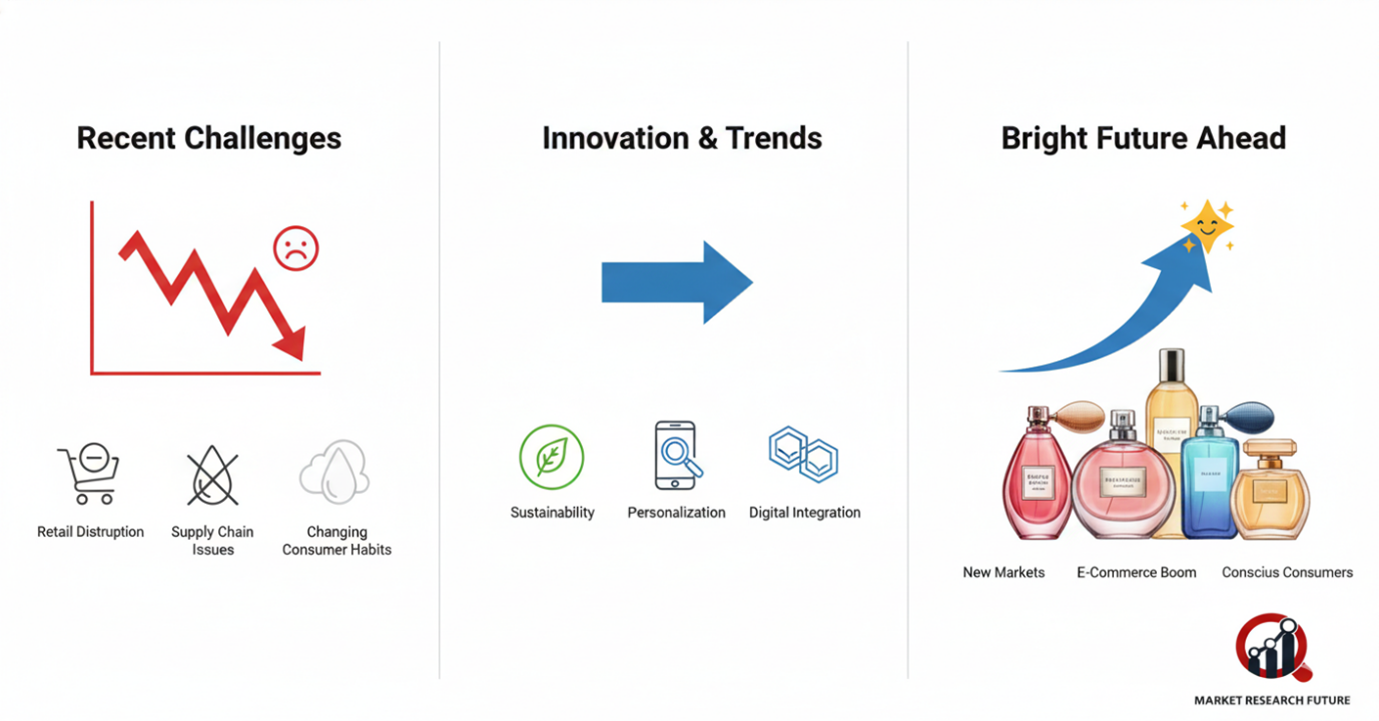Fragrance: After a fall, the future looks bright

Fragrance Market Overview
Fragrance is the practice of adding scented oils to products to make them smell good. Flowers at the entrances of grocery stores, the baked pretzels scent at the malls, and the distractive scents of the malls highlight how fragrances enhance our daily experiences. Beyond a sensory pleasure, fragrances can reduce stress and improve focus. Children with ADHD have improved concentration and increased attention span with themed scents.
Natural and Synthetic Sources
Fragrance can be made using natural sources like flowers, fruits, and spices or made and chemically synthesized. The essential oils of these natural ingredients, which are volatile organic compounds, are what oils capture and contain. In contrast to aroma chemicals used in food and perfumes, aroma chemicals and large molecules are used in perfumes. Research shows that pleasant scents appear in a business offering, customer satisfaction is higher, which shows that pleasant perfumes are more effective and of higher quality than artificial or absent scents.
The Complexity of the Human Nose
Smell is fascinating and subjective. Every human nose is equipped with 150-200 million olfactory receptors, and scientists have categorized 400 different types. Every receptor detects multiple scents, which makes differentiating smells difficult. Nonetheless, some olfactory experts can identify and even rank different scents of the same brand. Overall, the human nose can identify 10,000 different scents; however, with age and the decline of receptors, this ability diminishes.
Industry Trends and Challenges
For the past 20 years, the fragrance industry has expanded tremendously as a result of the increase in demand worldwide and an increase in consumer spending. Despite this, the industry continues to experience challenges. Many producers are using lower-quality synthetics over natural raw materials, and there are raw materials price fluctuations from countries like China. Even with these challenges, there are predicted increases in population and spending in retail, assuring further growth of the industry.
Future Outlook
The global fragrance market is positioned to keep growing over the next few years. With the advancement of technology and consumer awareness, fragrance creations and uses will continue to expand in daily life, including private and public spaces and personal care products. Adapting to evolving consumer trends will enable the industry to synergize its finite natural and synthetic resource balance.
Fragrance enhances an experience, recalls a memory, and bonds individuals. The fragrance industry is a growing market fueled by consumer demand and promising innovations.

Leave a Comment